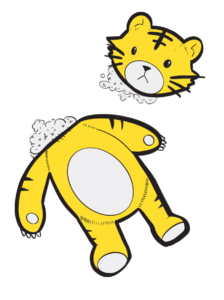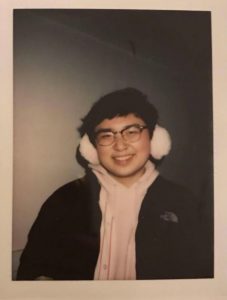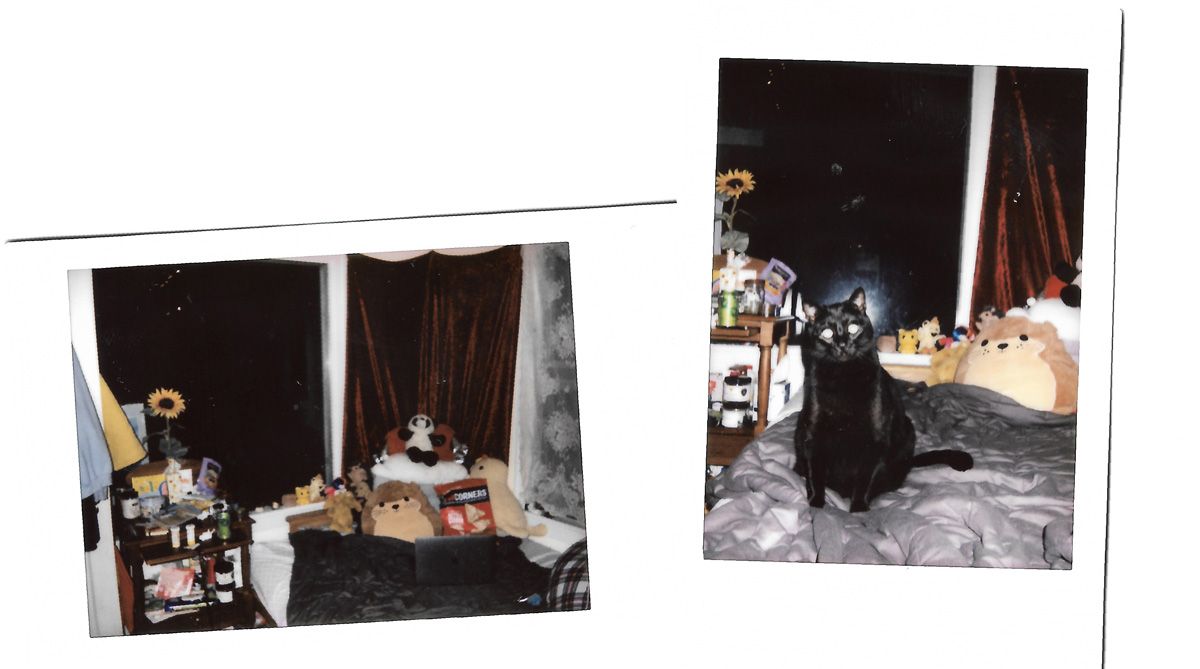Emma Lee Toyoda is no stranger to vulnerability. For proof, look no further than their 2016 debut album sewn me anew, which is as rich in profound lyricism as it is in lush instrumentals. It only takes one listen to understand Toyoda’s talent for translating the intensity of their feelings onto paper — and on their latest EP, i don’t wanna play ur show, they’re taking this intensity to new heights. Backed by a simple trio of guitar, bass, and drums, Toyoda’s distinct, husky vocals dominate the project. As they touch on sensitive topics such as gender identity and mental health, they seem entirely uninhibited, allowing each growl and scream to meander through the complex maze of their frustrations. Toyoda often describes their music as “sad soft punk,” and while this may hold true for their previous releases, I think i don’t wanna play ur show is a bit different. Coexisting with sadness and softness is a powerful sense of defiance.

Defiance hasn’t always come easily to Toyoda. As we speak over Zoom, they open up about the ways in which silence has been expected of them throughout their life. “This EP is definitely a lot of pushback against things I’ve internalized over the years as a young AFAB Japanese-Korean kid — [There’s a standard of] obedience that comes with that. You’re seen but not heard.” This pushback is most evident in the EP’s titular track, in which Toyoda rejects expectations of obedience and being a ‘model minority’ with biting sarcasm: “But I keep trying to act professionally / While I keep saying ‘no’ and you hear ‘yes please’ / Oh jeez, you must know better than me / Silly me.”
Although music has been an outlet for these frustrations, it’s also been a source of them. Much of i don’t wanna play ur show is inspired by interactions Toyoda has had with “‘progressive’ and ‘liberal’ organizations” that claim to be interested in supporting diverse voices, but instead end up exploiting them. It’s clear to Toyoda that as progressive movements gain speed, organizations are quick to adjust optics but slow to effect real change. “I was feeling like all of these emails I was getting [from bookers] were just trying to get me to do things to make them look good, without actually having care for me as a person. There’s this idea that we should just be thankful for the opportunities, but when those opportunities aren’t actually safe for my well-being, then what’s the point? Then I’m just put in a position to serve you.”

It’s not that Toyoda doesn’t see value in representation — in fact, they describe being “stoked” by the opportunity to encourage Asian kids to pursue their interests in music. What they’re opposed to is being a spokesperson for their race or gender, and the impossible expectations that come with such a task. “I want someone to see the full me,” they say, their tone both urgent and sincere.
So, who is the full Emma Lee Toyoda? Unfortunately, I don’t think our brief chat over Zoom makes me qualified to provide an exhaustive answer. But what I can say with certainty is that Toyoda is a person who cares deeply for others. When I ask how the absence of live music has impacted them over the past year, they provide a brief answer, before switching gears to what is clearly of greater importance to them; the people they love. Toyoda’s family own a Japanese restaurant, where they’ve been working for the entirety of the pandemic. When they’re not at Toyoda Sushi, Emma drives around delivering food for local mutual aid groups. Although it’s clear the prolonged absence of normality hasn’t been easy on them, Toyoda speaks to the vitality of supporting others without hesitation. “Making music right now hasn’t really been a priority. [My priorities are] making sure my family is safe, my friends are safe, and my community is safe and cared for. I miss [live music], for sure, but I think mutual aid is much more of a priority right now than music for me.”

While taking care of others may be their top priority, that doesn’t mean Toyoda has neglected taking care of themself. They’re open about their struggles with mental health, and the steps they’ve had to take in order to cope — steps that go beyond the realm of “self-care” infographics on Instagram. “[I have] real mental health issues, where I can’t just do yoga and have them go away,” they say with a laugh. Instead, they’ve relied on therapy, medication, and other coping mechanisms to help them through this time in which isolation has become the norm. For Toyoda, there’s no end-goal when it comes to mental health. They tell me that “figuring out [their] self-worth is a lifelong endeavor,” and one that they’re prepared to navigate no matter how intrusive their obsessive thoughts and self-doubt proves to be. Even though Toyoda sees no end to this endeavour of growth anytime soon, their music clearly demonstrates how far they’ve come already. “Throughout this EP, I’m getting in touch with the things that make me feel small and powerless. However, by doing things that question and confront my old sources of self-worth, instead of hiding from and denying them,- that’s what grows my power .”
Toyoda intends to continue this journey on their upcoming album, I Know I’m Worth Something. The simple affirmation makes for a beautiful title, however, it wasn’t chosen without hesitancy. Despite embracing the development of self-worth as an ongoing project, Toyoda still questioned if they should release an album with a title they don’t yet fully believe. Although this concern of inauthenticity could’ve been remedied by a title change, Toyoda instead chose to redefine what the title means — more specifically, what “something” means. “[The title has] become one of my mantras,” they explain, “because I don’t have to know what that ‘something’ is to know that it’s something. Even if it’s just that I’m worth a nice text, or a hug — I’m worth being cared for, and I’m worth being loved.”



